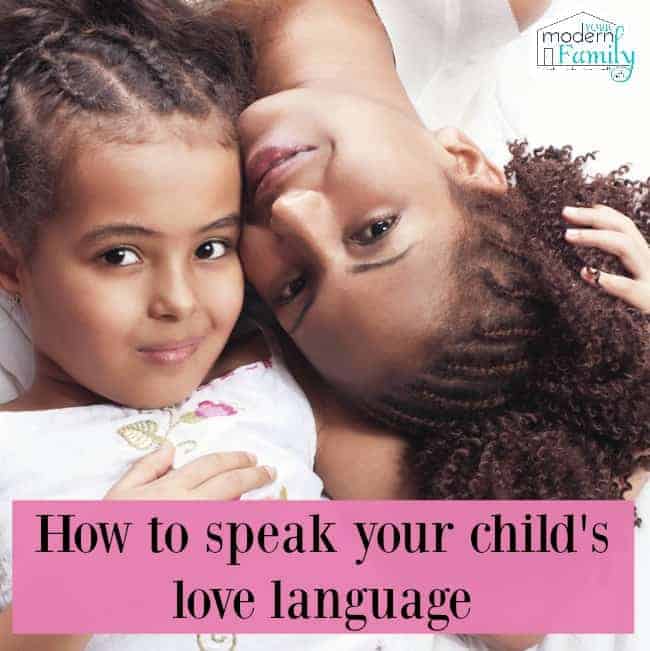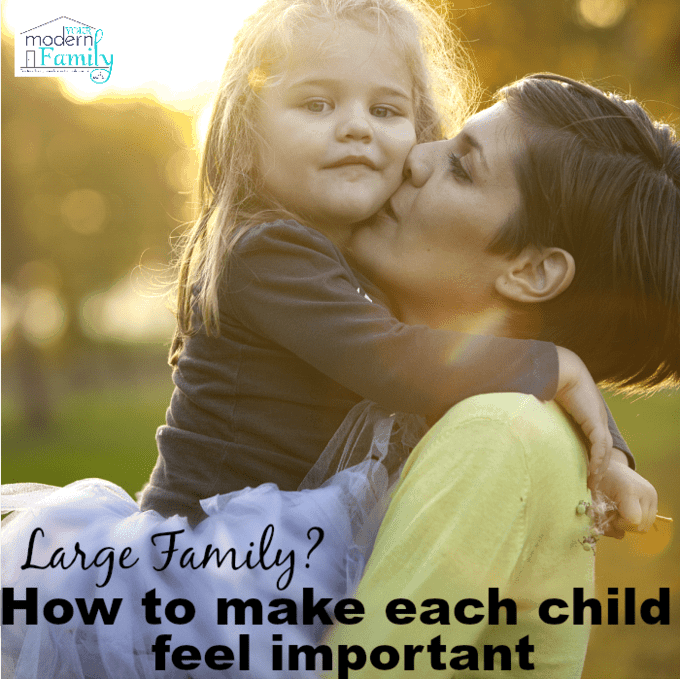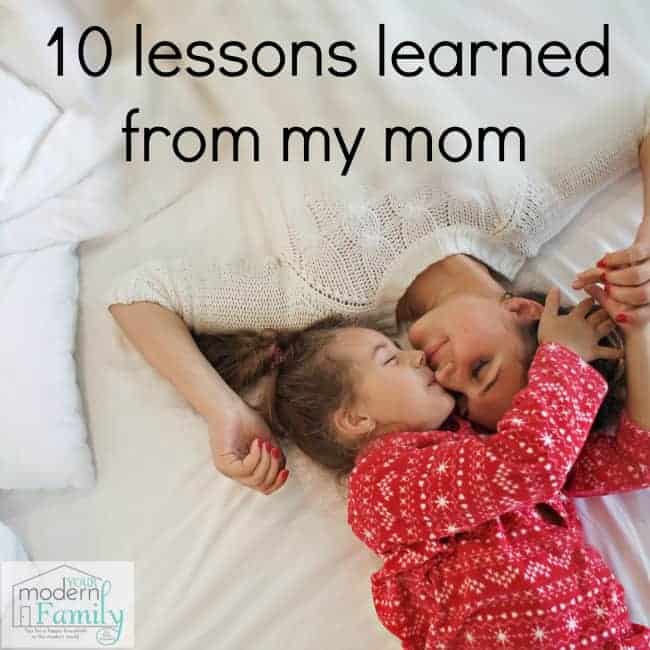This post may contain affiliate links. Please read our disclosure policy.
How much do you know about your child? I’ll bet you know his or her birthday, favorite color, favorite animal, favorite bedtime story, and an endless supply of other trivia that add up to make him or her a very special individual, am I right? However, do you know your child’s love language? If you’re scratching your head right now (or contemplating a quick dash to Google to search “love language”), stick around – this article is for you.
Your love language is how you show love to another individual and how you best understand expressions of love from someone else.
The concept was introduced by Dr. Gary Chapman in a book entitled The Five Love Languages: The Secret to Love That Lasts. Originally the purpose of this book was to help adults express love and build long lasting relationships, but the principles can be applied to children as well. In fact, Dr. Chapman later wrote The 5 Love Languages of Children.
It is important to understand the love language of your child in order to:
Avoid miscommunications. If you and your child speak different love languages, displays of affection can easily get lost in translation leading to feelings of rejection and distance.
Prevent behavioral issues. As human beings, we have a need for personal contact and emotional connections with others. The same is true for children; in fact, if that need goes unsatisfied it can lead to behavioral problems. If you and your child speak different love languages his or her emotional needs may not be met properly.
Promote healthy relationships. If your child learns to give and receive love in a healthy way, he or she will be better equipped to build strong relationships in the future with family, friends, and their own spouse and children.
The five love languages are:
- Gifts – Receiving items or surprises (experiences)
- Physical Touch – Receiving hugs, high-fives, and cuddle time
- Quality Time – Spending one-on-one time together
- Service – Helping out with tasks
- Words of Affirmation – Hearing praise and positive words
So, how can you determine what your child’s love language is? There are a slew of options, none of which is more “right” than any other.
Read. Purchase Dr. Chapman’s book The 5 Love Languages of Children and read additional materials on the concept of love languages. Getting a better understanding of what each love language is will help you spot specific qualities in your child.
Take a test. There are free online tests that will help you determine your child’s love language. In fact, one is on Dr. Chapman’s own site. This test is recommended for children 9 and up; however, you can try to take it in place of your child (answering as you believe your child would).
Try one out. Learn more about the different languages of love and then try each on your child over a period of time. Make notes about how your child responds to each.
Observe. Pay close attention to how your child displays affection to you, other children, family members, and even his or her dolls and stuffed animals. These observations may reveal his or her primary language of love.
However, as you begin exploring the different love languages and working to become fluent in your child’s, keep in mind three things:
1.) This is an art – not a science. We’re dealing with emotions, not mathematical equations. Be prepared to make adjustments in your way of showing affection to you child.
2.) Regardless of what your child’s primary love language is, you need to dabble in all five languages. You can’t not spend quality time with a child because his or her love language is “service”.
3.) You need to know what your own love language is. How do you best show and receive love? Use the tips above to determine your personal love language.
Understanding your child’s love language is a rewarding challenge that will benefit both you and your child for years to come. Use the tips in this article to get started today!
MORE POSTS YOU MIGHT LIKE:
Kelli Bhattacharjee, the owner of FreebieFindingMom.com,
















